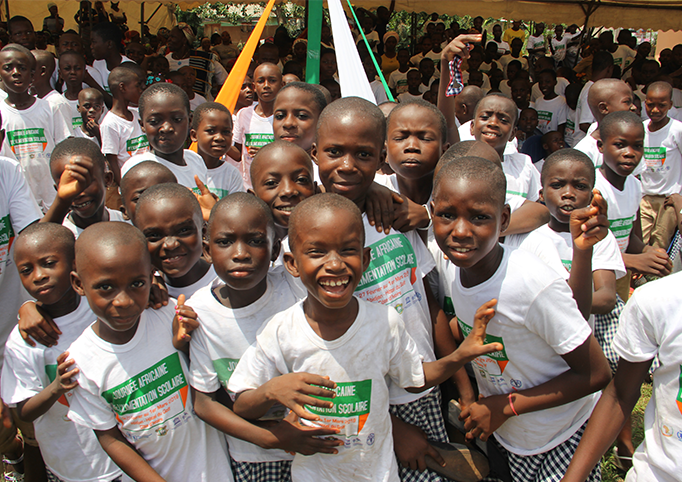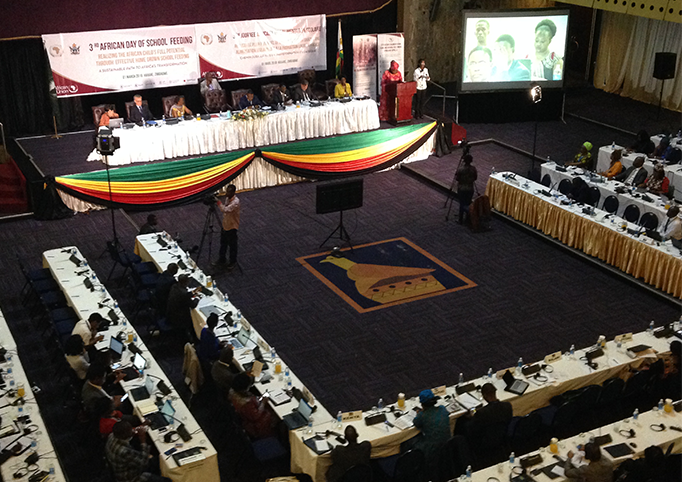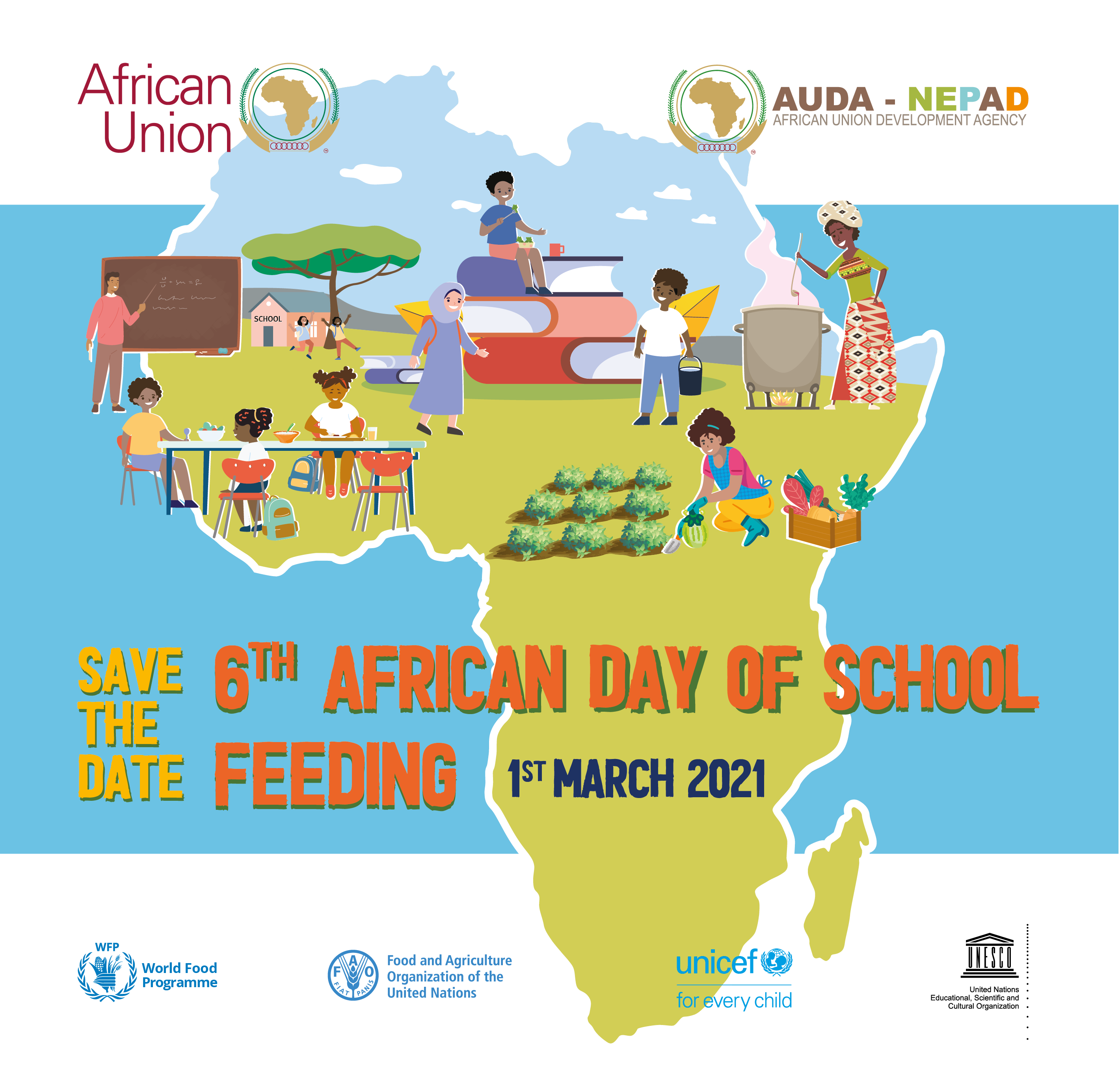
Monday, 1st of March, marks the 6th African Day of School Feeding (ADSF), an important date to reinforce and strengthen political will for school feeding on the continent. The ADSF started in 2016 with the support from the WFP Centre of Excellence Against Hunger Brazil and, ever since, it has served as a convening space bringing together stakeholders across the public, private, civil society and multilateral sectors to raise awareness and knowledge on school feeding, take stock of progress made and galvanise political support for the adoption, implementation or sustainment of pro-school feeding policies programmes and resources.
This year’s ADSF will be held virtually on 1st March at 1pm Nairobi time/7am Brasília time and will be guided by the theme “Harnessing Africa’s Traditional Knowledge and Food to Support Home-Grown School Feeding Programmes and Systems during COVID-19 Response and Beyond”. The list of participants will include Ministers and experts from government institutions of African Union Member States, African Union Commission, UN Agencies, Civil Society Organizations, academic and research institutions, and representatives from other relevant institutions. The sessions will be broadcasted in English and French and will cover the state of school feeding in Africa and the links between school feeding, local agriculture, and human development. You can register for the event here.
The African Day of School Feeding was created after a delegation of the African Union came to Brazil for a study visit to learn about the local home-grown school feeding approach and to discuss the terms of collaboration between the WFP Centre of Excellence and the African Union. “The African Day of School Feeding is a crucial event to renew the commitment of African countries to promoting homegrown school feeding programmes as a key strategy to achieve the Sustainable Development Goals”, says Daniel Balaban, Director of the WFP Centre of Excellence against Hunger Brazil. “It is paramount that this date continues to be celebrated as a reminder of the importance of school feeding as a tool to promote food and nutrition security on the continent”, he added.

The first ADSF took place in Niamey, Niger, while the second and third editions were respectively organized in Congo and Zimbabwe in 2017 and 2018. In 2019, celebrations took place in Abidjan, Côte d’Ivoire, and in 2020 an online event marked the date. This year’s African Day of School Feeding is taking place at a turning point of the COVID-19 pandemic. WFP, along with its sister United Nations agencies, is committed to supporting the African Union and its Member States in recovering the development gains lost due to COVID-19, in advancing home-grown school feeding as well as leveraging robust data, sound research, evidence-based approaches, and innovation to accelerate this progress.
As part of this year’s celebrations, the WFP also organized a series of side events, including a special Executive Board meeting on 24th February that launched the State of School Feeding Worldwide report. The event had opening remarks by David Beasley, Executive Director of WFP, and Professor Sarah Anyang Agbor, Commissioner for Human Resources, Science and Technology of the African Union Commission, in addition to other participants.
The event is also part of a series of events throughout 2021 in which WFP will seek to build a global coalition on home-grown school feeding. The evidence in the report tells us that scaling up home-grown school feeding can contribute to and accelerate more sustainable education and food systems.





